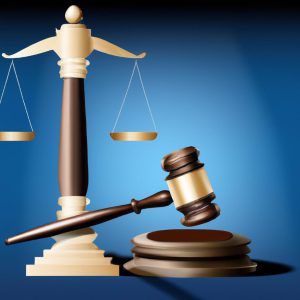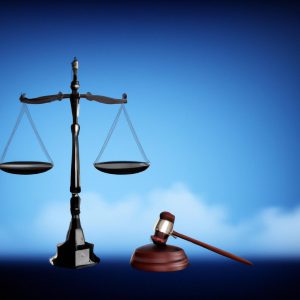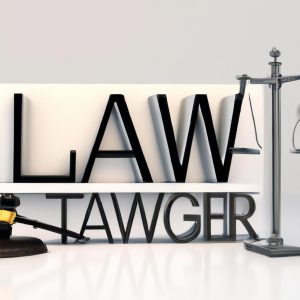In the realm of estate planning and administration, the role of an executor is a pivotal one. Tasked with carrying out the final wishes of a deceased individual, an executor plays a crucial role in ensuring that the distribution of assets and settling of debts occurs in accordance with the law. As seasoned attorneys at Morgan Legal Group in New York City, we understand the complexities and responsibilities that come with being an executor. Join us as we delve into the intricacies of this crucial position and explore what it truly means to be an executor.
Understanding the Role of an Executor in Estate Planning
An executor plays a crucial role in estate planning, as they are responsible for ensuring that the deceased person’s wishes are carried out according to their will. This involves managing the distribution of assets, paying off debts and taxes, and handling any legal proceedings that may arise during the probate process.
Being an executor is a significant responsibility that requires careful attention to detail and thorough knowledge of estate laws. Executors must act in the best interests of the beneficiaries and ensure that the estate is settled in a timely and efficient manner. It’s essential to choose an executor who is trustworthy, organized, and capable of handling complex financial and legal matters.
Key Responsibilities and Duties of an Executor
An Executor is tasked with a myriad of responsibilities and duties when it comes to managing the estate of a deceased individual. Some key responsibilities include:
- Managing Assets: The Executor is responsible for identifying and managing all assets of the deceased, including bank accounts, real estate, and personal belongings.
- Paying Debts: It is the Executor’s duty to pay off any outstanding debts and expenses of the deceased before distributing assets to beneficiaries.
- Distributing Assets: The Executor must distribute the assets of the estate according to the terms of the Will or based on state laws if there is no Will.
Additionally, an Executor is also required to file necessary paperwork with the court, communicate with beneficiaries, and ensure that all legal requirements are met throughout the probate process. It is crucial for an Executor to act in good faith and in the best interests of the estate at all times.
Qualities to Look for When Choosing an Executor
When choosing an executor for your estate, it is essential to consider certain qualities that are crucial for the smooth administration of your assets after your passing. An executor is a person or institution responsible for carrying out the terms of your Will and distributing your assets according to your wishes. The following qualities are important to look for when selecting an executor:
- Trustworthiness: An executor should be someone you trust implicitly to handle your affairs with honesty and integrity.
- Organizational skills: Managing an estate requires meticulous attention to detail, so your executor should be highly organized and capable of keeping accurate records.
- Legal knowledge: Understanding the legal responsibilities and obligations of an executor is crucial, so it is beneficial to choose someone knowledgeable in estate law or willing to seek advice from legal professionals.
- Availability: Your executor should be readily available to handle the responsibilities associated with settling your estate, which may require a significant time commitment.
Ensuring a Smooth Executor Process: Tips and Recommendations
An executor is a person appointed by an individual to carry out their wishes as outlined in their Will upon their passing. This individual is responsible for managing the deceased person’s estate, ensuring that debts are paid off, assets are distributed according to the Will, and any necessary legal proceedings are carried out smoothly. It is crucial to select someone trustworthy and capable of handling the responsibilities of an executor.
When choosing an executor, consider the following tips and recommendations to ensure a smooth executor process:
- Choose someone organized and detail-oriented.
- Communicate openly with your chosen executor about your wishes and the contents of your Will.
- Consider appointing a professional executor, such as a lawyer or trust company, to minimize family conflicts and ensure impartiality.
Q&A
Q: What is an executor?
A: An executor is a person appointed to carry out the wishes outlined in a person’s will after their death.
Q: What are the responsibilities of an executor?
A: The responsibilities of an executor include identifying and gathering the deceased person’s assets, paying off any debts and taxes owed, and distributing the remaining assets to the beneficiaries named in the will.
Q: Who can be named as an executor?
A: The person writing the will can choose anyone to serve as their executor, as long as the individual is of legal age and has not been convicted of a felony.
Q: What happens if there is no executor named in a will?
A: If no executor is named in a will, the court will appoint someone to carry out the duties of an executor. This person is known as an administrator.
Q: How long does the executor have to settle the estate?
A: The time it takes to settle an estate varies depending on the size and complexity of the assets involved. However, executors are typically given a few months to a year to complete the process.
Q: Can an executor be removed from their duties?
A: Yes, an executor can be removed from their duties if they are found to be incompetent or acting in a way that goes against the wishes of the deceased person or the law. This usually requires a court order.
Insights and Conclusions
In conclusion, understanding the role of an executor is crucial when it comes to estate planning and the administration of a deceased person’s affairs. Whether you are choosing an executor for your own estate or serving as one for someone else, it is important to be prepared for the responsibilities that come with the role. By following the proper legal procedures and carrying out the wishes of the deceased, an executor plays a vital role in ensuring a smooth transition of assets and property. So, next time someone asks you, “What’s an executor?” you can confidently explain the important duties and responsibilities that come with the title.





